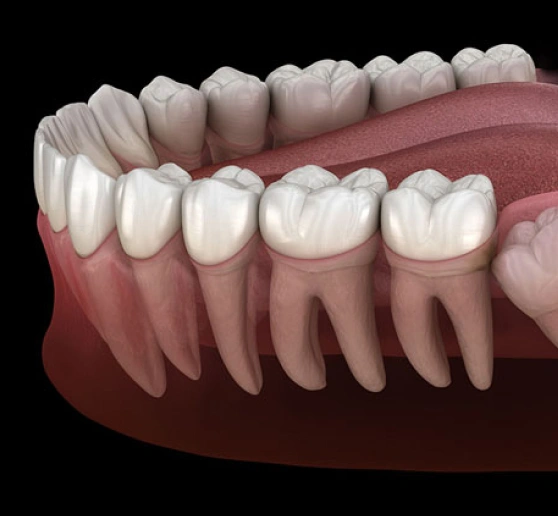1275 McConnell Drive, Suite H. Decatur, GA 30033

Why Wisdom Teeth Are Removed
Wisdom teeth are the last set of molars to appear, often coming in during the late teens or early twenties. For some people, these teeth emerge without problems. For many others, however, wisdom teeth grow in at awkward angles, push against neighboring teeth, or remain trapped beneath the gums. These issues can cause pain, infection, and even long-term damage to your bite.
Having wisdom teeth evaluated early at Druid Hills Dental in Decatur, GA allows your dentist to recommend removal before problems develop. Taking a proactive approach helps protect your oral health, prevents crowding, and reduces the risk of complications later on.
Signs You May Need Wisdom Teeth Removal
- Pain or soreness at the back of the mouth
- Jaw stiffness or swelling
- Redness, tenderness, or inflammation of the gums
- Lingering bad breath or unpleasant taste
- Teeth beginning to shift or feel crowded
The Wisdom Teeth Removal Process
The first step is a full dental exam, often with digital X-rays, to see how the wisdom teeth are positioned. At Druid Hills Dental in Decatur, GA, your dentist will review the images with you, explain whether removal is recommended, and answer your questions.
On the day of the procedure, anesthesia or sedation may be offered to keep you comfortable. The type depends on your needs and the complexity of the case. Once the area is fully numb, your dentist or oral surgeon carefully removes the tooth. Impacted teeth may require a small incision, while teeth that have already erupted are generally easier to remove.
After the extraction, gauze is placed to control bleeding, and you’ll be given clear instructions for at-home care. The process is routine, and most patients are able to return to light activities the next day.
Benefits of Wisdom Teeth Removal
- Preventing crowding that shifts nearby teeth
- Reducing the risk of gum infection and tooth decay
- Protecting bone and gum health around molars
- Relieving ongoing pain or pressure in the jaw